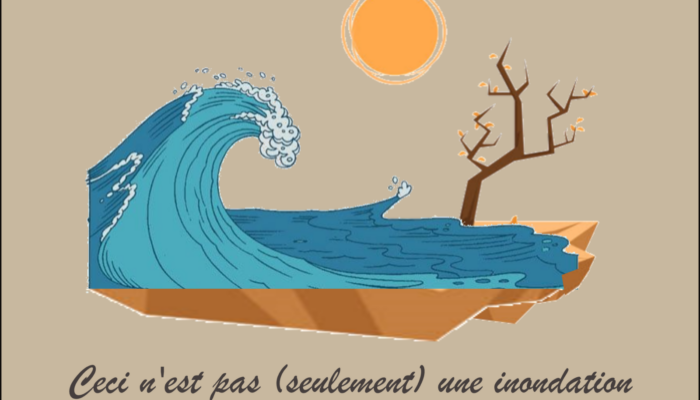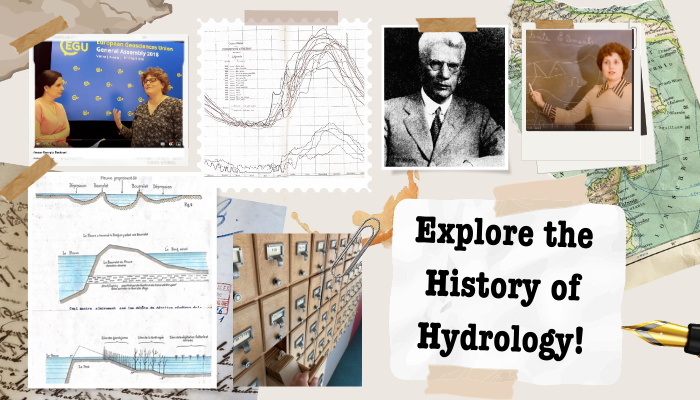As with all professional activities, one of the greatest challenges for us, geoscientists, is how to reduce our own CO2 emissions linked to our research activities over the coming decades. A collective of 57 researchers came together in 2021-2022 to promote awareness and concrete action to decarbonize scientific activities: it was the birth of Ma Terre en 180 Minutes, whose title is inspired by Ma ...[Read More]
Floods and droughts: two sides of the same hydrological coin
This is not (only) a flood. Inspired by Magritte’s painting: ‘Ceci n’est pas une pipe’ After an alarming dry winter, the European continent has been enduring weeks of a record-breaking heatwave across the southern regions, while coping with scattered, intense precipitation and flash floods. In Zaragoza (Spain), recent flash floods swiftly transformed the previously dry landscape into raging rivers ...[Read More]
How to organize an EGU24 Session as a newcomer? A guide for early career scientists.
Have you ever thought about organizing an EGU session instead of just attending them? Until September 14th you have the chance to do just that! It can sound a bit intimidating, especially if you’ve never done it before. But don’t worry – here’s everything you have to know. Find a Topic and Co-Conveners First off, you need to settle on a topic and find your co-conveners, i.e. the team who ...[Read More]
Exploring the History of Hydrology – Join the Effort to Map Our Discipline Across the Centuries
The history of hydrology stretches back millennia: from the engineers of ancient high cultures over scientific pioneers like Da Vinci and Pallisy to modern groundbreaking modellers. However, so far, few hydrologists have worked to systematically record the history of their discipline – especially in its more recent decades. That is a gap that the History of Hydrology working group of the In ...[Read More]




